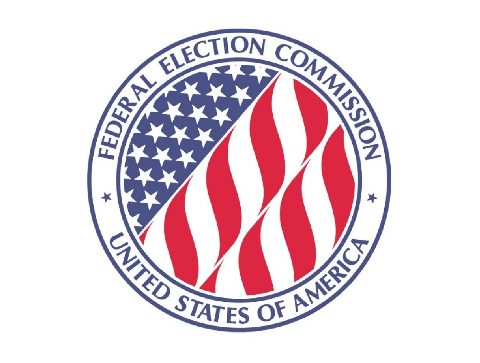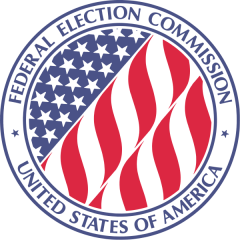On April 2, 2024, the Institute for Free Speech submitted comments to the Federal Election Commission in regards to the Advisory Opinion Request 2024-05 (Nevadans for Reproductive Freedom).
Read a PDF of the comments here.
April 2, 2024
Via email: ao@fec.gov
Federal Election Commission
1050 First Street, N.E.
Washington, D.C. 20463
RE: Advisory Opinion Request 2024-05 (Nevadans for Reproductive Freedom)
Dear Commissioners:
The Institute for Free Speech[1] submits this comment to assist the Commission in responding to Advisory Opinion Request 2024-05 (Nevadans for Reproductive Freedom).
AOR 2024-05 provides an opportunity for the Commission to speak with one voice in confirming that ballot initiatives are not “elections” under the Federal Election Campaign Act of 1971, as amended (the “Act”), and thus fall outside of the Commission’s jurisdiction.
The Commission should also provide pragmatic guidance for how candidates can advocate for ballot initiatives without running afoul of the Commission’s coordinated communications regulations. We recommend two approaches, in the alternative, that effectively analogize the proposed activities to buying advertising space in a mixed purpose brochure.
I. Ballot Initiatives are Not “Elections” Under the Act
AOR 2024-05 asks whether a federal officeholder or candidate for federal office for federal office may solicit funds for a 501(c)(4) organization that intends to support a “constitutional initiative” to amend the state constitution.[2]
AOR 2024-05 represents that “[n]o federal candidate or officeholder will be asked to solicit funds on behalf of the [501(c)(4) organization] for any earmarked purpose beyond general support of the Initiative or [the 501(c)(4)]’s mission.”[3] It clarifies that no funds will be earmarked for “any federal election activity.”[4] And it represents that the 501(c)(4) organization “would issue a certification under 11 C.F.R. § 300.65(e) once the Commission affirms that ballot measure activity does not fall under the category of ‘election activities.’”[5] Section 300.65(e) provides a safe harbor for solicitations on behalf of non-profit organizations.
Considering the Requesters’ representations, the sole material issue is whether a ballot initiative is an “election” for purposes of the soft money ban. The Commission should reaffirm that it is not.
First, there is the text of the law. The Act defines “election” as “a general, special, primary, or runoff election,” “a convention or caucus of a political party which has authority to nominate a candidate,” “a primary election held for the selection of delegates to a national nominating convention of a political party,” and “a primary election held for the expression of a preference for the nomination of individuals for election to the office for President.”[6]
All these enumerated categories concern candidate elections. None, by their plain terms, unambiguously reference ballot initiatives. Three out of four categories explicitly reference candidate elections. To the extent there is any ambiguity in the terms “general,” “special,” or “runoff” elections, it should be resolved by reference to the other enumerated categories. “It is a familiar principle of statutory construction that words grouped in a list should be given related meaning.”[7] Consistent with the noscitur a sociis canon of construction, when several categories are “associated in a context suggesting that the words have something in common, they should be assigned a permissible meaning that makes them similar.”[8] In the context of section 30101, assigning a similar permissible meaning means that “general,” “special,” or “runoff” elections are candidate elections.
This conclusion is confirmed by Commission regulations, which define “election” as “the process by which individuals, whether opposed or unopposed, seek nomination for election, or election, to Federal office,” and states “[t]he specific types of elections,” such as “[g]eneral election[s],” “[p]rimary election[s],” and “[r]unoff election[s],” are “included in this definition.”[9]
This distinction makes sense. “This Court has recognized only one permissible ground for restricting political speech: the prevention of ‘quid pro quo’ corruption or its appearance.”[10] There cannot be quid pro quo corruption in ballot initiatives. While there may be winners and losers, ballot initiatives are not sentient and cannot choose to do favors for supporters. Only people—i.e., candidates and officeholders—can do that.[11] Accordingly, the Court has opined that “[t]he risk of corruption perceived in cases involving candidate elections . . . simply is not present in a popular vote on a public issue,” such as a referenda,[12] and noted “[w]hatever may be the state interest or degree of that interest in regulating and limiting contributions to or expenditures of a candidate or a candidate’s committees there is no significant state or public interest in curtailing debate and discussion of a ballot measure.”[13]
Consistent with the plain text of the Act, Commission regulations, and the sole permissible ground for restricting political speech, the Commission has long recognized that ballot initiatives are not elections. For example:
- Advisory Opinion 1980-95 (First National Bank of Florida) held that a bank could purchase advertising to support amendments to the state constitution, stating “the contribution in question does not fall within the purview of the Act as it relates only to ballot referenda issues and not to elections to any political office;”[14]
- Advisory Opinion 1984-62 (B.A.D. Campaigns) cited Advisory Opinion 1980-95 approvingly, noting “[t]he Commission has previously held that contributions or expenditures exclusively to influence ballot referenda issues are not subject to the Act;”[15]
- Advisory Opinion 1989-32 (Leo McCarthy) noting that foreign nationals could make disbursements solely to influence ballot measures;[16]
- The July 2003 Foreign National Brochure noted that “[d]espite the general prohibition on foreign national contributions and donations, foreign nationals may lawfully engage in political activity that is not connected with any election to political office at the federal, state, or local levels;”[17]
- Advisory Opinion 2005-10 (Berman/Doolittle) held that the soft money restrictions in the Bipartisan Campaign Finance Reform Act (“BCRA”) do not apply to fundraising activities by federal office holders to raise money for ballot measure committees that are not directly or indirectly established, financed, maintained, or controlled by the federal candidates. [18] As Requesters have noted, Representative Pelosi weighed in on this request to express her belief that the drafters of BCRA did not intend for it to apply to ballot initiatives.[19]
- Advisory Opinion 2010-07 (Yes on FAIR) held that federal candidates could raise money outside of the federal source and amount limitations in the period before the initiative qualifies for the ballot;[20]
- MUR 6678 (MindGeek S.A.R.L. f.k.a. Manwin Licensing International S.A.R.L.) dismissing a complaint alleging that foreign nationals violated the foreign national ban by contributing to a ballot initiative. Three Commissioners wrote a statement of reasons explicitly predicating their decision to dismiss the matter on the fact that ballot initiatives are not “elections;”[21] and
- MUR 7523 (Stop I-86 to Protect Miners and Jobs) also dismissed a complaint alleging that foreign individuals violated the foreign national ban by making contributions to a ballot committee.
At times, the Commission has adopted arbitrary lines in its advisory opinions concerning ballot initiatives. For example, Advisory Opinion 2003-12 (Flake) drew a distinction between “pre-ballot qualification activities” and “post-ballot qualification activities.” This distinction prompted a split on the Commission in Advisory Opinion 2010-07. In Advisory Opinion 2010-07, Chairman Petersen and Commissioners Hunter and McGahn wrote separately to explain why the Commission should not rely on the distinction. First, the relevant language in Advisory Opinion 2003-12 was “dicta.”[22] Second, Advisory Opinion 2003-12 was effectively superseded by Advisory Opinion 2005-07—the opinion on which Representative Pelosi opined that BCRA was not intended to limit federal officeholder activities in ballot initiatives.[23] And third, even at the time, Advisory Opinion 2003-12 was wrongly decided.[24] Indeed, there is no consistent philosophical reason to draw a bright line pre-ballot qualification and post-ballot qualification activity.
Ballot initiatives are not “elections.” They do not present the same risk of quid pro quo corruption or the appearance thereof as candidate elections. Therefore, the Commission should confirm that the soft money restrictions do not constrain federal candidates raising money for ballot initiatives.
II. Allocation of Expenses for Dual Purpose Communications
The second two questions presented in AOR 2024-05, concerning whether and how the Requesters may split the allocation of costs associated with a television advertisement that advocates for both the ballot initiative and a federal candidate, presents a much closer question. We suggest two analytic frameworks, presented in the alternative, for the Commission to consider in resolving this matter. In either case, the Commission should analogize advertising time to the sale of space within a brochure.
First, the Commission should view the proposed advertisement as a 501(c)(4) advertisement in which the candidate is paying to effectively rent advertising space. In other words, the Commission should analogize the proposed television advertisement to a brochure. Groups can produce a brochure that advocates for their preferred causes and sell advertising space to candidates at fair market value.[25] The sale of a portion of the brochure to a candidate does not transform the entire brochure into a coordinated communication or the costs of the entire brochure into a contribution to the candidate, even if, by choosing to advertise in one brochure over another, the candidate is making a strategic choice to align him or herself with the overarching message of the brochure. Rather, the candidate’s payment for his or her portion prevents a contribution to the candidate by ensuring that the candidate does not receive a gratuitous benefit.
Television advertisements can be divided up in the same way. If the candidate pays the ballot committee in advance for the portion of the communication that would expressly advocates and/or promotes, advocates, supports, or opposes the candidate, there is no coordinated communication or contribution because the payment prong of the test for coordinated communications is not satisfied—there is no third-party payment.
Alternatively, the Commission should apply the framework set forth in Advisory Opinion 2024-02 (Waters). In Advisory Opinion 2024-02, the Commission concluded that a federal candidate could receive “reimbursements” of otherwise federally permissible funds from non-federal sources for portions of a brochure paid for by the federal candidate that highlight the federal candidate’s endorsement of non-federal candidates and ballot initiatives. This same framework can be applied to television advertisements. Other than accounting differences, the biggest difference is that, under this approach, the funds received by the candidate as “reimbursements” must be from otherwise federally permissible sources and in otherwise permissible amounts.
We believe the first option—treating mixed purpose television advertisements as akin to selling advertising space—provides a workable solution that meets the purposes of the Act. In the event that the Commission is unpersuaded, applying the Waters framework adds additional belts and suspenders to achieve a similar substantive outcome.
Respectfully submitted,
Bradley A. Smith Gary Lawkowski
Chairman Senior Fellow
[1] The Institute for Free Speech is a nonpartisan, nonprofit 501(c)(3) organization that promotes and defends the First Amendment rights to freely speak, assemble, publish, and petition the government.
[2] AOR at 2, 3.
[3] Id. at 2.
[4] Id.
[5] Id.
[6] 52 U.S.C. § 30101(1).
[7] Third Nat. Bank in Nashville v. Impac Ltd., Inc., 432 U.S. 312, 322 (1977).
[8] Antonin Scalia & Bryan A. Garner, Reading Law: The Interpretation of Legal Texts 195 (2012).
[9] 11 C.F.R. § 100.2(a), (b), (c), (d).
[10] Federal Election Commission v. Cruz, 596 U.S. 289, 305 (2022).
[11] See generally Buckley v. Valeo, 424 U.S. 1, 26-27 (1976). (“To the extent that large contributions are given to secure a political quid pro quo from current and potential office holders, the integrity of our system of representative democracy is undermined.”).
[12] First Nat. Bank of Boston v. Bellott, 435 U.S. 765, 790 (1978).
[13] Citizens Against Rent Control/Coalition for Fair Housing v. City of Berkeley, Cal., 454 U.S. 290, 299 (1981).
[14] Advisory Opinion 1980-95 at 2.
[15] Advisory Opinion 1984-62 at 1 n.2.
[16] Advisory Opinion 1989-32 further concluded that the foreign national ban would apply if the ballot committee coordinated activity with a non-federal candidate’s reelection effort.
[17] Foreign Nationals, FEC (July 2003), https://web.archive.org/web/20150322070028/http://www.fec.gov/pages/brochures/foreign.shtml.
[18] See also Concurring Opinion in Advisory Opinion 2005-10 of Vice Chairman Michael Toner and Commissioner David M. Mason (Aug. 29, 2005), https://www.fec.gov/files/legal/aos/2005-10/413244.pdf (Explaining that fundraising for ballot committees does not implicated BCRA’s soft money ban).
[19] See Commissioner Ellen L. Weintraub, Ex Parte Communication Advisory Opinion 2005-10 (Aug. 17, 2005), https://www.fec.gov/files/legal/aos/2005-10/413239.pdf.
[20] The Commission could not reach an opinion on what happens after the initiative qualifies for the ballot. See also Concurring Opinion in Advisory Opinion 2010-07 (Yes on Fair) of Chairman Matthew S. Petersen and Commissioners Carolina C. Hunter and Donald F. McGahn (June 30, 2010), https://www.fec.gov/files/legal/aos/2010-07/1142185.pdf (Explaining that ballot measures are not “elections” for purposes of the soft money ban and that there is no basis for drawing a distinction between pre-ballot qualification and post-ballot qualification activity).
[21] MUR 6678, Statement of Reasons of Vice Chairman Matthew S. Petersen and Commissioners Caroline C. Hunter and Lee E. Goodman (Apr. 30, 2015), https://www.fec.gov/files/legal/murs/6678/15044372963.pdf.
[22] Concurring Opinion in Advisory Opinion 2010-07 (Yes on Fair) of Chairman Matthew S. Petersen and Commissioners Carolina C. Hunter and Donald F. McGahn at 2 (June 30, 2010), https://www.fec.gov/files/legal/aos/2010-07/1142185.pdf
[23] Id. at 2 n.4, 2-3.
[24] Id. at 2 n.4.
[25] See generally 11 C.F.R. § 100.52(d)(1) (defining an in-kind contribution as the provision of goods or services without charge or at a charge less than the usual and normal charge for such services); Advisory Opinion 2004-37 (Waters) (determining that “because [the requester] represent[ed] that each Federal candidate will be included in the brochure only if he or she reimburses the Waters Committee or [a leadership PAC] for the full production and distribution costs attributed to him or her, the proposed brochure would not satisfy the payment prong of the coordinated communication test.” (emphasis added)).














